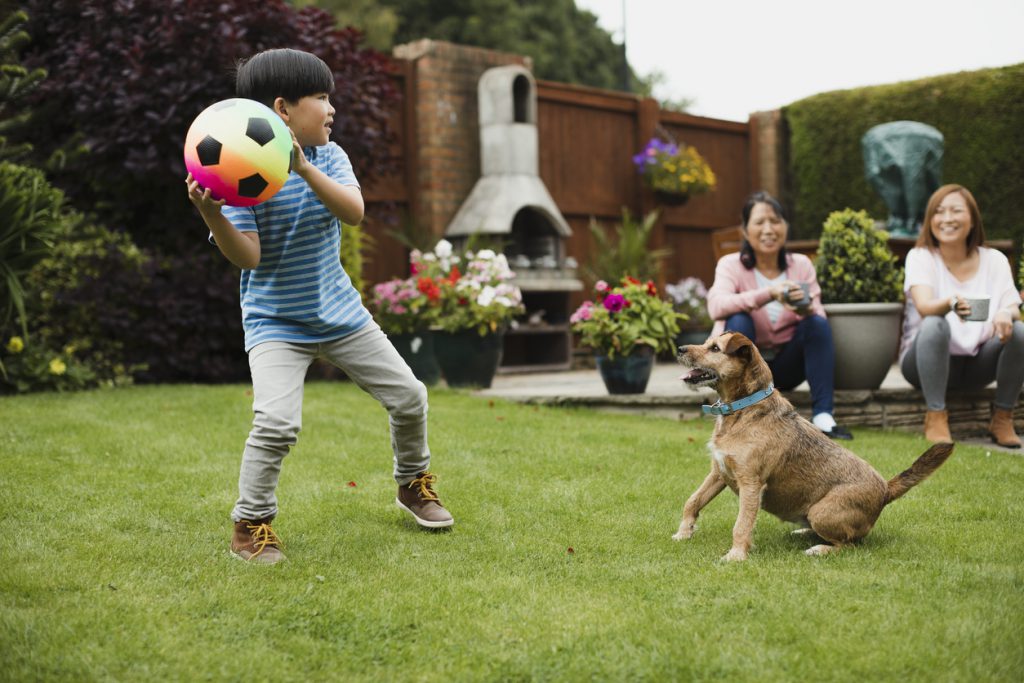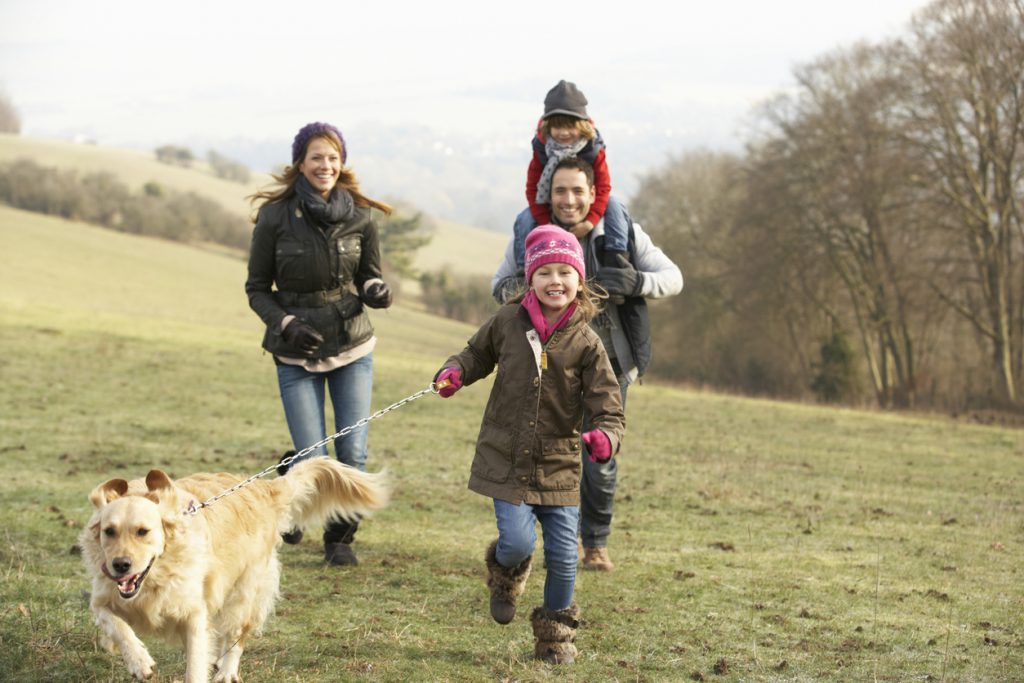Continuing on from our ‘Shine a Light’ campaign launched earlier this month, we want to keep spreading the word on the importance of inclusivity and diversity when it comes to finding dedicated foster carers to look after vulnerable children and young people in their local communities across the UK. During the month of January, our focus will be on the myth that fostering with pets can stop you from becoming a successful foster carer. We want you to know that in the vast majority of cases that this is completely untrue!
As long as we can determine that your pet is deemed safe around children when we carry out home checks as part of your foster carer assessment process, it is most likely that a child or young person in your care will relish having a furry companion in their new home.
We spoke to Helena, a birth child part of a pet loving foster family currently caring for a 14-year old girl called K*, joining them in September 2018. Helena described the range of positive influences that having pets in the family has had on K in terms of being able to settle into life as a foster child.
“In our house we have got two dogs, a labrador and a cocker spaniel, and K has her own hamster as well, which is solely her responsibility’ said Helena.
‘The hamster is called Clive. She used to look after the school’s hamster quite a lot, so from there she kind of realised that she could look after something. She is definitely the type of kid that wants to look after people and other living things’.
‘She saved up for the hamster herself and uses her pocket money to buy food for it. It’s good in a financial aspect, as she has learned that she has to buy this hamster food so that it can survive’.
‘I find with foster children that they often just want something else to love, and with her hamster that has really shown”.
Many children and young people coming into the care of our foster families often struggle with confidence in their abilities and ultimately their place in the world around them, as they will often have had a very different upbringing to other children their age.
Helena went on to describe how fostering with pets in their home has allowed K to try things she may not have been able to in her previous home, allowing her to build an strong emotional bond with them whenever she needed to let off steam.
“Before she got Clive, she found a lot of comfort in the dogs. She would take them for walks if she had had a bad day, and she would often have a cuddle with them’, Helena continued.
‘Every now and again we would give her the responsibility for her to feed them and walk them, just so she can get an understanding of responsibility. When K came to us, she was living in a completely different world’.
‘She’d never really experienced lots of things in life, so by steadily building up different jobs to do in terms of the dogs was helpful in terms of showing what a nurturing family home and routine looked like’.
‘Having pets has just been a major life lesson for her, as obviously kids from a neglected background sometimes don’t have the grasp on life that maybe other kids their age would do”.

If you decide to become a foster carer with one of our leading independent foster agencies, you will have access to specialist foster care training and support from our experienced local teams and trainers. This can help you learn various proven approaches to improve a child’s emotional health as they try and heal from any trauma experienced before coming into your home.
Alongside helping arrange access to therapy sessions through a child or young person’s GP through our supervising social workers, Helena describes how foster families inclusive of pets can take on additional therapeutic advantages of their own.
“I think with a pet they will also just sit to you and either listen or just be there no matter what…the worse that they can do is walk off, but our dogs are too lazy to do that!’
‘It’s massively therapeutic. She can be having the worst day possible and then we say that she just needs to take the dogs out and walk them around the block. It’s good for her sometimes to have that bit of time to herself’.
‘Sometimes she doesn’t necessarily want to talk to someone. She just wants to be with someone, and that doesn’t need to be somebody human’.
‘She will attend therapy sessions where she is able to talk about how she is getting on and how she feels about everything, but sometimes she wants to sit and stew; where she is allowed to be angry and she can just let those emotions out”.

“She runs along with the dogs like something out of The Sound of Music! It’s just a massive escape for her, and there’s only so much escaping that you can really do in the house”.
“Having the pets around means that she always has something to talk about with us too. When she comes back from a walk with them we will ask questions like ‘How did it go?’ or ‘Did you see anyone while you were out?’”
Do you currently have pets and a spare bedroom in your home? You could well make the perfect foster parents to raise a child or young person within a caring and understanding environment, giving them the foundation to make their own way in life. Talk to a member of our friendly team today by making an enquiry to foster with us.
If you want to read more of our answers to some of the most common fostering myths, then keep an eye on our ‘Shine a Light’ series as we focus on a different topic each month!
*Full name of foster child not disclosed for safeguarding reasons.